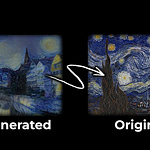Every major technology changes how we live.
The printing press rewired religion. Electricity transformed cities. The internet connected the planet in real time.
But some inventions don’t just change how we live, they change who we are.
AI agents are that kind of invention.
They don’t just answer questions. They set goals. Make decisions. And take action, without you. This isn’t just ChatGPT writing a paragraph.
This is Devin writing, testing, and shipping software. This is AutoGPT planning and executing a full marketing campaign. This is Klarna replacing 700 employees with one system update.
Because AI agents don’t need your instructions, they just need your permission.
You’re no longer the user, you’re the overseer of something that thinks and acts for you.
I’ve worked with AI since 2016, before the ChatGPT hype, and I train Fortune 1000 teams to use agents not just to move faster, but to think and work smarter.
AI agents might be the last invention humanity ever needs to make, and here’s why.
We tend to romanticize the internet era as the golden age of innovation, and that’s for good reason.
The internet turned information into power. It connected humanity into a single nervous system of data and ideas. You could search anything, learn anything, share anything, all within seconds. That changed everything from education to communication and even politics.
A teenager in India could learn to code for free on YouTube and land a remote job with a Silicon Valley startup. A man could start a podcast and become more influential than CNN, Fox, and The New York Times put together. And someone could livestream a protest that reaches millions in real time and force politicians to actually change policies.
But the internet still required us to act. Google gave you 10 million results but you had to pick one. Amazon had 400 options but you had to decide which to buy.You still had to type the email, click “Send,” post the tweet, schedule the meeting.
You made hundreds of micro-choices per day. Which means the internet made information abundant, but humans were still the bottleneck.
That was the Information Age. You were the decision-maker, until now.
Because AI agents are changing how we interact with technology and the world.
They can make decisions for us and that's the biggest shift humanity has ever seen.
Why? Because this shift isn’t only technological. It’s cognitive. It changes the role we play in our own digital environment.
Let’s take Manus, Genspark or Proxy. These agents don’t just complete tasks. It breaks them down, creates a to-do list, searches the internet, writes code, and loops its own output until the goal is achieved. You’re not giving it steps. You’re giving it a finish line.
Maybe you want to create a marketing campaign. My team has produced over 100 customer acquisition funnels, 14,000 emails, and nearly 20,000 ads across dozens of different industries. But now, an Agent can do all of that for us.
There’s also Devin, Cognition AI’s agent. Devin completed real coding tasks in open-source projects, solving nearly 14% of real GitHub issues entirely on its own, outperforming the best previous AI models by over 7x.
And it is so much more than just getting faster results. Klarna’s AI assistant handled over 2.3 million customer conversations, the equivalent of 700 full-time human agents.
That’s not a marginal improvement. That’s industrial-scale decision-making done without people in the loop. AI agents are giving us access to infinite decisions. And in a world built on leverage, whoever controls decision-making at scale controls the future.
So, while you might think that AI agents are just another upgrade, in reality, this invention is a redefinition of human-computer interaction.
We are going from having AI as a tool to something that takes action for us.
But you don’t need to fear AI, at least, not in the way you think you should.
See, every technological leap comes with a wave of fear and this one is no different. Factory workers feared automation. Now it’s writers, coders, lawyers, even doctors watching AI draft documents, generate diagnoses, and execute business decisions.
It feels like we’re watching the floor collapse beneath us. Not in the distant future. Now.
And the numbers validate the concern. McKinsey estimates that up to 30% of hours worked globally could be automated by 2030.
AI agents can already manage customer service, marketing funnels, legal analysis, and entire coding pipelines. It’s already displacing real people, in real time. Meta fired 3,600 people and they blame AI for this.
In fact, a CNN report says that 41% of companies worldwide plan to reduce workforces by 2030 due to AI.
The threat is existential. Not just for jobs but for identity. If your work is your worth, and the work disappears, what’s left?
But history tells us that technology doesn’t just destroy. It also reinvents.
So, embracing AI can lead to new industries and roles that enhance human potential.
Yes, displacement is happening. But so is creation. And creation of jobs is happening on a scale we’re only beginning to see. Analysts project that AI could contribute up to $15 trillion to the global economy by 2030.
We’re already seeing new roles emerge. AI ethicists, prompt engineers, model trainers, AI behavior auditors.
And it’s not just about niche roles. Businesses that adopt AI agents are reporting increased efficiency and faster innovation. Entire categories are being born. We already have AI-native agencies and human-AI creative studios.
So, you can choose to resist the wave. Or you can learn to surf it.
But this creation of jobs is slower than destruction.
Jobs will disappear faster than they are replaced. And that gap is where chaos lives.
We’re just getting started, but if you’re seeing how big this shift really is, go ahead and subscribe to Bionic Writer for AI philosophy and BionicBusiness.com for integrating AI deep in your business.
I’ll keep showing you how to stay ahead of the curve and actually catch this wave instead of getting swept away by it.
See, there’s something deeper happening beneath the economic shifts and job charts. Something more personal and psychological.
The internet gave us a taste of it, algorithms that shaped what we saw, what we clicked, what we bought. But even then, we still felt in control. We could close the tab and walk away.
But with AI agents, that illusion is starting to dissolve.
Because these aren’t just recommendation engines. They’re active participants. They make choices on your behalf. They learn your preferences and emotional patterns. And soon, they’ll be managing your life.
I am talking about AI agents managing your calendar, health decisions, finances, and even relationships. And they will not do it as assistants. But as advisors and proxies for your own judgment.
The moment an AI becomes better than you at making decisions for your life, is the moment you start giving up the will to make them yourself.
That’s when we risk losing control over our own lives, forever.
This is already happening. If we don’t establish clear boundaries now, we may end up in a world where AI shapes human destiny more than humans do.
There are also hard ethical questions that no one’s fully answering. Who is responsible when an AI makes a harmful decision on your behalf?
What happens when AI agents start negotiating with each other for resources, rights, or outcomes that affect us all?
And beyond that lies the philosophical dilemma:
If AI handles everything, what does it mean to be human?
What do we do when we are no longer the main character in our own story?
Talk again soon,
Samuel Woods
The Bionic Writer






